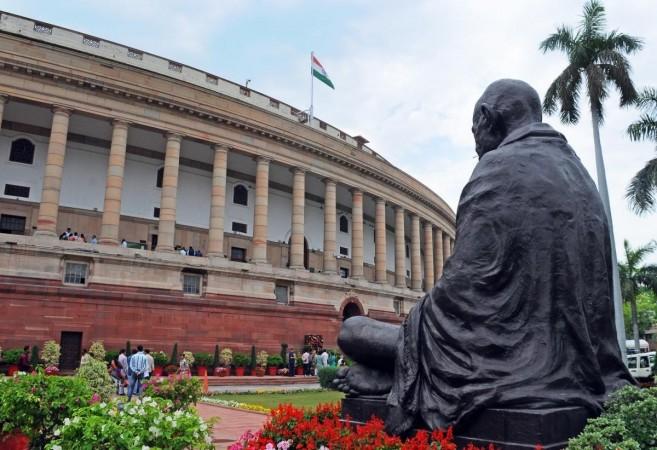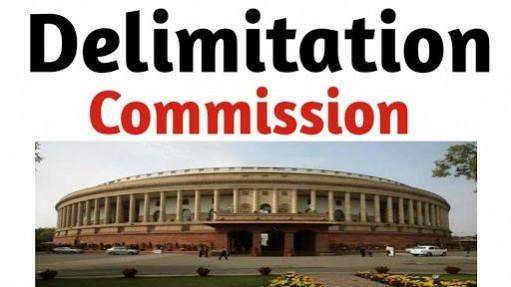Notwithstanding the opposition of the National Conference and Peoples' Democratic Party (PDP), the Union Government introduced a bill in the Lok Sabha to empower the Lieutenant Governor of the Union territory of Jammu and Kashmir may nominate not more than two members, one of whom shall be a woman, from the community of Kashmiri Migrants to the Jammu and Kashmir Legislative Assembly.
The bill also empowers the Lieutenant Governor to nominate one member from displaced persons from Pakistan-occupied Jammu and Kashmir to the Jammu and Kashmir Legislative Assembly.
J&K Reorganization Act 2019 to be amended
"The Jammu and Kashmir Reorganisation Act, 2019 (34 of 2019) (the Act) was enacted with a view to providing for the reorganization of the State of Jammu and Kashmir and for matters connected therewith or incidental thereto", the bill reads.

"At the time of the militancy in the erstwhile State of Jammu and Kashmir in the late eighties, particularly in Kashmir (Division) in 1989-90, a large number of people migrated from their ancestral places of residence, in Kashmir province, particularly the Kashmiri Hindus and Pandits along with few families belonging to Sikh and Muslim communities", the bill further mentioned.
Initially, all the migrants were moved to Jammu. Later on, some migrants chose to go to other parts of the country, namely Delhi, Bengaluru, and Pune.
46,517 Kashmiri migrant families and 41,844 PoJK displaced families registered on record
As per the data available with the Government of Jammu and Kashmir, there are currently forty-six thousand five hundred and seventeen families having one lakh fifty-eight thousand nine hundred and seventy-six persons registered with the Relief Organisation of the Government of Jammu and Kashmir who have got registered over a period of last three decades.
In the wake of the 1947 Pakistani aggression in Jammu and Kashmir, thirty-one thousand seven hundred and seventy-nine families migrated from Pakistan-occupied areas of Jammu and Kashmir to the erstwhile State of Jammu and Kashmir. Of these, twenty-six thousand three hundred and nineteen families settled in the erstwhile State of Jammu and Kashmir and the remaining five thousand four hundred and sixty families moved out of Jammu and Kashmir to other parts of the country. Further, during the Indo-Pak wars of 1965 and 1971, ten thousand d sixty-five more families were displaced from the Chhamb Niabat area.
Of these, three thousand and five hundred families were displaced during the 1965 war and six thousand five hundred and sixty-five families were displaced during the 1971 war.
As such, a total of forty-one thousand eight hundred and forty-four families were displaced during 1947-48, 1965 and 1971 Indo-Pak wars.

Delimitation Commission also recommends nomination for these communities.
The Delimitation Commission, while undertaking the delimitation process of Assembly and Parliamentary Constituencies in the Union territory of Jammu and Kashmir, received many representations from the "Kashmiri Migrants" and also "Displaced Persons from Pakistan-occupied Jammu and Kashmir" regarding the reservation of seats in the Legislative Assembly of the Union territory of Jammu and Kashmir to preserve their political rights and identity.
The Delimitation Commission, after considering the matter in depth recommended for representation of communities of "Kashmiri Migrants" and "Displaced Persons from Pakistan-occupied Jammu and Kashmir" in the Legislative Assembly of the Union territory of Jammu and Kashmir by way of nomination.
24 seats of the J&K assembly already reserved for residents of PoJK
As per sub-section (4) of section 14 of the Act, twenty-four seats in the Legislative Assembly of the Union territory of Jammu and Kashmir have been reserved for the people
residing in the area of the Union territory of Jammu and Kashmir under illegal occupation of Pakistan. The said seats shall remain vacant until the area under the occupation of Pakistan ceases to be so occupied and the people residing in that area elect their representatives.
The representation of the "Kashmiri Migrants" and "Displaced Persons from Pakistan-occupied Jammu and Kashmir" in the Legislative Assembly of the Union territory of Jammu and Kashmir shall be given on lines of section 15 of the Act, which provides for the representation of women.
Further, upon completion of the delimitation process, the Delimitation Commission has published orders with regard to the delimitation of the Assembly and Parliamentary Constituencies of the Union territory of Jammu and Kashmir. As per these orders, the number of seats in the Legislative Assembly of the Union territory of Jammu and Kashmir has been increased from 107 to 114 with the reservation of nine seats for Scheduled Tribes for the first time. Thus, consequential amendments in sub-sections (3) and (10) of section 14 of the Act are required.
The government made it clear that the Act is proposed to be amended to provide representation to "Kashmiri Migrants", "Displaced Persons from Pakistan occupied Jammu and Kashmir" and Scheduled Tribes in the Legislative Assembly of the Union territory of Jammu and Kashmir so as to preserve their political rights as well as for their overall social and economic development.

















